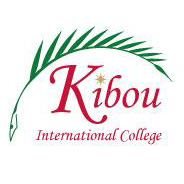About us
Kibou is a co-educational, multicultural independent school providing a complete educational program from Kindergarten to tertiary level. Our academic foundation is rooted in our tradition with a greater emphasis on humane wisdom, skills acquisition and discipline and combined with a spirit of internationalization. Our underlined value system is both local and global. Our future-oriented school project is informed and inspired by the work of Dr. Dileep Chandralal, Professor Emeritus, Okinawa University, Japan.
Core Values
Knowledge, virtue (good conduct), aesthetics (Aesthetics are meant to enhance our surroundings as well as our minds), civic mind (community engagement), health and well-being (in mind and body), and wealth (prosperity)

Our Vision & Mission
Our Mission
We strive to educate the whole person by providing a well-balanced and disciplined learning environment in which a full range of academic and creative activities blend to nourish the ‘whole child’.
Founder's Message
Japan is one of the best sources of inspiration for any country aspiring to be an advanced and matured society. For instance, blending the best ideas of the past with a vision for the future and going international while preserving our own tradition would be the best way for an island nation like ours. This is the path followed by Japan to achieve modern development. About 150 years ago, Japanese people realized the importance of adopting Western technology. The policy of “Wakon-Yousai” which means ‘Japanese spirit plus Western technology’ enabled them to adopt western technology while keeping Japanese spiritual tradition. Today, we should teach our younger generation how to adopt modern technology for solving our problems while keeping Sri Lanka spiritual tradition alive.
Looking back at the collaborative work between Japan and Sri Lanka in the recent past, people in the North-Western Province would remember the Okinawa Sri Lanka Project for Passing over the Message of Life and Peace to the Future Generations successfully implemented for six continuous years (2011-2016) in collaboration with the Ministry of Education, Japan and the Ministry of Education, Sri Lanka. This project called “Building Bridges to Asia” sent every year 20 Sri Lanka school children to Okinawa and 8 Japanese junior high school students to Sri Lanka. We are happy to see that the students who participated in this project have grown into exemplary characters in higher education, business world and social services.
In 2017, we started a new project to exchange teachers and discuss “the education for the next generation” with the cooperation of Okinawa University and Okinawa Sri Lanka Friendship Association under the sponsorship of the Bank of Ryukyus. This project serves for the benefit of the both countries, building a dynamic partnership between Japan and Sri Lanka. Japanese primary schools, high schools and language and cultural academies and many educationists are very supportive in making this educational endeavor a success. This year’s theme of the project is Mindfulness.
To meet unpredictable challenges and serve the future world, we need to nurture people who are capable of carving out their own future while seeing the world from multiple perspectives. To achieve these goals, students would need to improve their knowledge and skills, build a sound intellectual foundation integrated with compassion and consideration for others as well as for nature.
I sincerely hope that Kibou International College provides good services for people of different backgrounds, achieving maximum diversity, creating collaborative cultures, and contributing to building a peaceful and prosperous future.
Our Values
- We are committed to quality education.
- We encourage inquisitive minds and innovation
- We are a community that conforms to high standards of behaviour.
- We place a high priority on extra-curricular activities.
- We respect all people across all cultures
Our Strengths
- The most significant feature of our school is the active collaboration with Japan that will enable students to look for new educational and career paths. Parents as well as children will be able to participate in a rewarding partnership embracing sustainability and creativity of the Japanese society.
- Our holistic approach to education and our comprehensive and caring educational environment will bring out the full potential of the child by developing these abilities to the full.
- Our staff is is professional and capable of understanding varied levels of skills of children and guiding them toward the expected targets.
- Our student-centered education provides learning materials and instructions suitable to the different levels of development stages of kids.
- Our modern facilities and tools of technology are very effective for the development of 21st century skills.
- Our school is located in a natural environment conducive to the mental and physical health of the child. Children will learn not only in classroom but on the school grounds that incorporate biodynamic agriculture, water harvesting and a future-oriented landscape master-plan.
- Our policy of strictly restricting a classroom to a limited number of students allows us to know better the backgrounds, learning needs and aspirations of each individual student so that we can maintain the the academic quality and teaching effectiveness.
Blessed with these gifts, we strive for excellence in education and give support and guidance to the child toward a meaningful life journey.
Top priority on skills development and value education
Broadly speaking, there are two combined streams of skills we help students acquire on the way to a successful life journey.
- One stream covers visible skills relating to the fields such as characters, numbers, mathematics, languages like Sinhala, Tamil, English and Japanese, society, science, technology, environment, aesthetics, and sports, etc.
- The other stream includes a range of invisible skills that enhance mental performance and the quality of life for people of all ages, such as power of thinking, creativity and imagination, powers of judgment, concentration, planning ability, leadership, powers of perseverance, courage, positive thinking and holding out hopes, etc.
While the former type of skills encompasses our core value of Knowledge, the latter type of skills represents Virtue, namely the human side of education.
